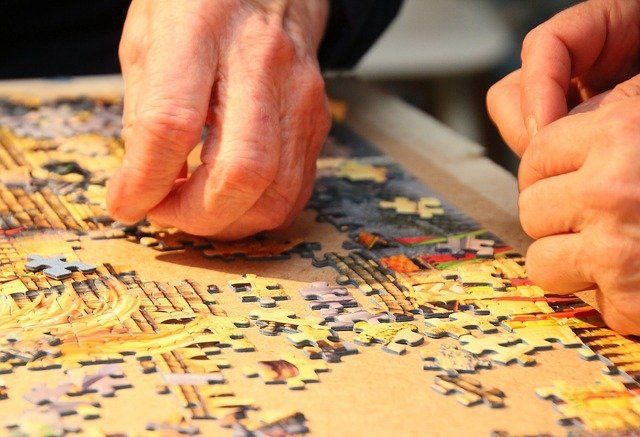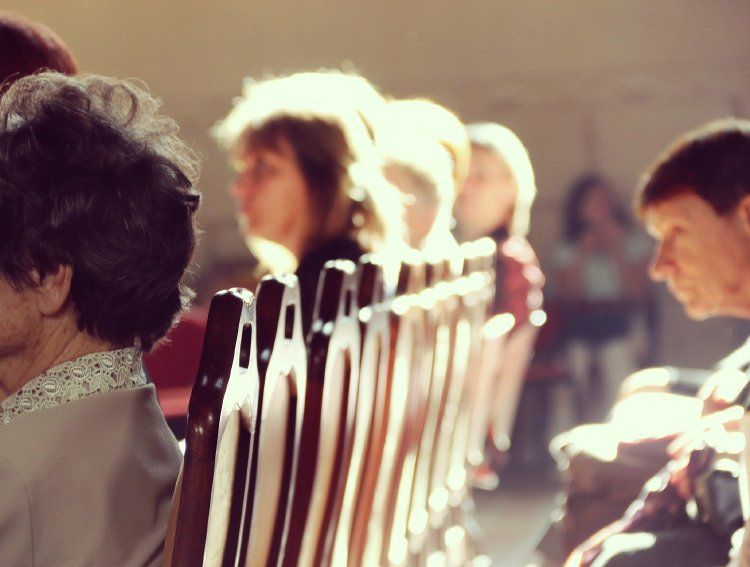At present I am enjoying my third child-hood – through the eyes and hands of my two grandsons! ‘Snakes and ladders’, ‘Lego’, ‘Tintin’, ‘Thunderbirds’ and ‘Monopoly’ are all making a second appearance.
But it is the re-emergence of the jigsaw puzzle that is giving me the greatest pleasure (at the moment we are only in the 50-100 piece league). It was while doing one of these puzzles that my mind began to wander, and before long I was making comparisons between the puzzle and the local church.
Fitting together
No piece of the jigsaw puzzle has any real significance when considered on its own. Whatever its shape, size or colour it only has significance when it takes its place as part of the overall picture.
It is the completed jigsaw that matters, not the individual pieces. It would have been easy enough to place the separate pieces on the table and invite friends to admire them. Each piece could have been examined for colour, shape, design and texture, but all that would have been pointless.
What matters is that the pieces should be fitted together. It is the ‘togetherness’ that is important, and that is how the apostle Paul viewed the church. ‘In him the whole building is joined together’, he declares, ‘And in him you too are being built together to become a dwelling in which God lives by his Spirit’. Again, ‘From him the whole body, joined and held together by every supporting ligament, grows and builds itself up in love, as each part does its work’ (Ephesians 2:21; 2:22; 4:16).

Bigger picture
There was a great togetherness about the early church (Acts 2:44, 46). The Saviour promised that ‘where two or three come together in my name, there I am with them’ (Matthew 18:20).
The letter to the Hebrews warns against fragmentation: ‘Let us not give up meeting together, as some are in the habit of doing, but let us encourage one another’ (Hebrews 10:25).
Unlike the pieces of the puzzles, Christians do have a meaningful separate existence. But our calling is to take our place within the fellowship of the local church for the overall good. Salvation is personal, but not individual.
We are saved into the company of God’s people. We are part and parcel of the bigger picture, the church. As such we have a responsibility, not only to ourselves and fellow believers, but also to the Head of the Church, to play an active part in the fellowship. If it is true that ‘we come together to be the church’, then it is important that we do come together.
We need one another
Only very exceptional circumstances should keep us apart. The whole church should come together whenever the Word of God is preached or prayer offered. I know it is unrealistic to expect every single member to be present at every meeting. Family care, work and sickness make that impossible.
But is it not possible for every family to be represented at the Sunday services and the weekly Bible study/prayer meeting? Togetherness is important. We need one another, and God calls us to be together.

One word of warning about house groups. They can play a useful role in the life of the church, but they should never become a substitute for the whole church coming together regularly.
Get up and go
Then, again, no piece of a jigsaw puzzle is more important than another. Every believer matters. Paul makes that abundantly clear in 1 Corinthians 12. A jigsaw with half a dozen pieces missing is a sorry sight.
Yet I suspect that some Christians secretly believe that their absence won’t make any difference, that their presence or absence is neither here nor there.
I remember a children’s address about a prince who needed a thousand gallons of milk for a great party. He instructed 100 milkmen each to deliver 10 gallons of milk to a central tank.
One man, because of heat and distance, carried an empty churn and, at his destination, filled it with water. He argued that 10 gallons of water would make no difference in a thousand-gallon tank of milk.
But unfortunately others had the same idea, and when the tank was checked it contained a thousand gallons of water! Next time you are inclined to miss out on fellowship remember that tank of water, or a jig-saw with twenty pieces missing; and get up and go.

Rough edges
In one respect the local church is unlike a jigsaw puzzle. All the pieces of a jigsaw have been so designed that they dovetail together perfectly. There are no rough edges, no clash of colours; each piece slips into place with consummate ease.
Things are not so in the local church. We are rough-hewn pieces needing to be rounded and shaped, and that process takes a lifetime. We need to be patient with one another, loving and forgiving one another, praying for one another, all the time ‘making every effort to keep the unity of the spirit through the bond of peace’ (Ephesians 4:3).
I’ve heard Christians say that they used to attend such and such a church but left because ‘they didn’t fit in’. But how hard did they try? Fitting in takes time, and has to be worked at. No church is perfect; all its members are in the process of having corners knocked off.
When we ourselves join, we bring our own peculiarities and angularities. Yet it is by living in harmony that we demonstrate the power of the gospel.




